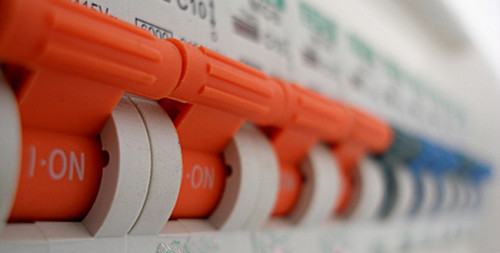Protect Yourself From Electrical Hazards At Home
 Electricity is both your friend and foe, depending on whether you know how to control it and protect yourself from electrical hazards. It is not an uncommon thing to hear that someone had an electrical accident in their home. Electricity is often a cause of domestic fires in cheaply made or privately rented houses and apartments. To make the lives of you and your family safer, take all the necessary safety measurements to protect your home from various possible electrical hazards. Here is what you can do.
Electricity is both your friend and foe, depending on whether you know how to control it and protect yourself from electrical hazards. It is not an uncommon thing to hear that someone had an electrical accident in their home. Electricity is often a cause of domestic fires in cheaply made or privately rented houses and apartments. To make the lives of you and your family safer, take all the necessary safety measurements to protect your home from various possible electrical hazards. Here is what you can do.
Appliance Signs
If you have a home electrical appliance that frequently gives you shocks, trips a circuit breaker or blows a fuse, then you can be sure that a certain malfunction has happened. When an appliance gives these kind of signs, it’s not a coincidence. Unplug it and discontinue its use in order to prevent further malfunctions. Hire a professional electrician who will detect the malfunction and repair the appliance, making it safe again.
Keep Appliances Away From Water
Placing electrical appliances beside water or moisture is a bad idea. If an appliance somehow got in touch with water (you accidentally dropped it or it fell down), go to the panel board, find the corresponding circuit and shut off power. Otherwise, do not try to retrieve it from the water or unplug it, due to risk of electric shock that might be fatal to you. Once the appliance is away from water and thoroughly dried, call an electrician, who can see whether or not the appliance is safe for further use.
Circuit Breakers & Fuses
You have to use the right-sized ones. If circuit breakers and fuses are not the right size or do not match the circuit specifications, they will frequently show poor performance and fail when you need them the most. When shopping for replacements, check the packages or consult your electrician. Make sure you buy a few extra fuses and circuit breakers for the next unexpected situation.
Avoid Cube Taps
They do seem convenient to use, allowing you to plug more than one appliance into a single outlet. But they also increase the risk of overheated wiring, circuit overload, and fire. If you must use this or any other kind of outlet-stretching device, know how much power the cube tap can handle. Make sure that the collective power requirement of all the devices you plan to plug in does not exceed the device’s power demand limit.
Fix Your Wall Plates
Wall plates protect you from the contact with electrical wiring. If a wall plate is missing or broken, it can be very dangerous, especially in the dark. You may try to find and reach the light switch, but accidentally touch the wiring and get electrocuted or shocked.
Cords
Do not treat your power cords roughly, because too much pressure on them can compress the inside wire or damage the insulation, which leads to increasing risks of overheating and fire. Do not nail them down to the floor, and always check whether they are pinched underneath or between pieces of furniture. You should also have a fire fighting unit nearby, in case of fire.
Ground Fault Circuit Interrupters (GFCI)
The GFCI is a safety outlet, a device that is able to detect current leakages in electrical circuits (like when an electrical appliance comes in touch with water). When that happens, the GFCI reacts instantaneously by shutting off power to that particular receptacle, thus preventing electrocution, burns, and shock. In contemporary home construction, GFCIs are a requirement anywhere water is in close proximity with electrical outlets. If the house you live in is old, you can install them for a very little cost in your kitchen, bathrooms and garage.
Take every precaution you can in order to prevent coming into contact with electricity. Follow your appliances’ behavior, avoid low-quality powered devices and always fix electrical-related malfunctions. If you are not skilled enough for these kinds of repairs, have a professional electrician do this for you.

John Stone is a DIY enthusiast interested in home improvement, sustainability, new technologies, and pretty much all things DIY. He is a regular contributor at SmoothDecorator .



